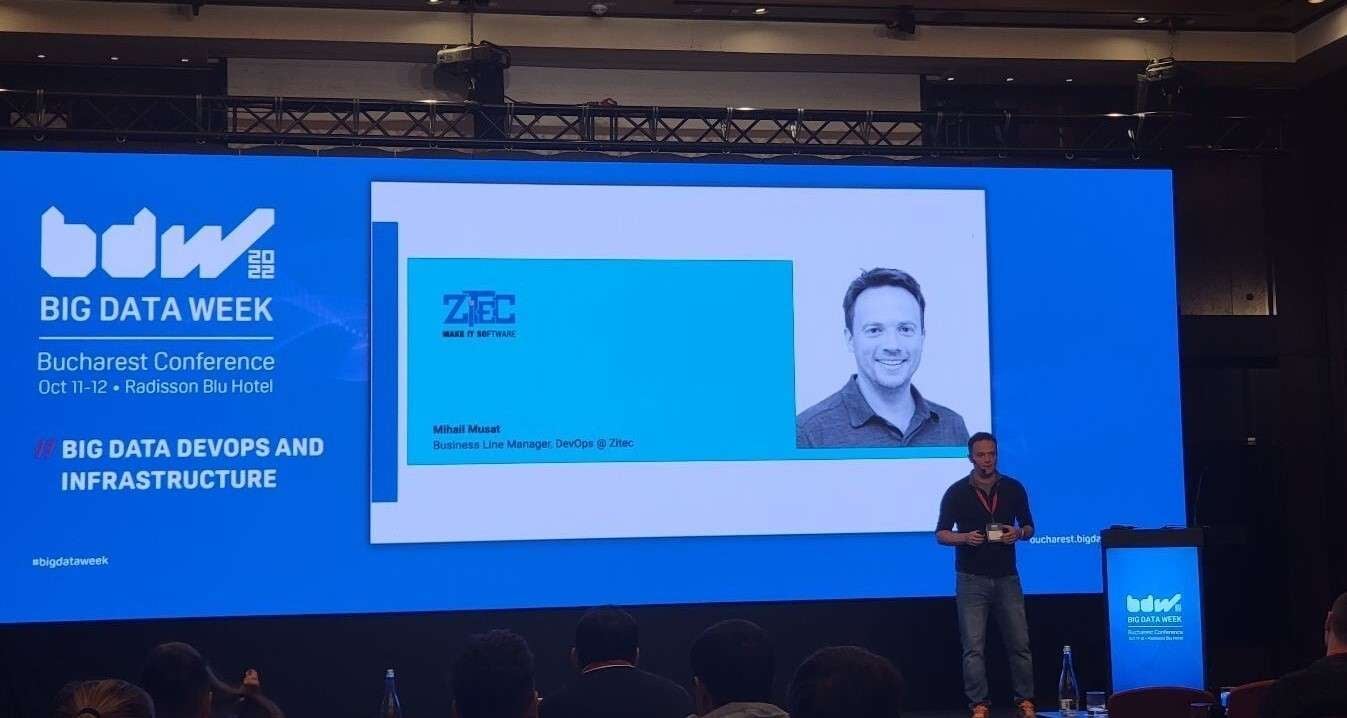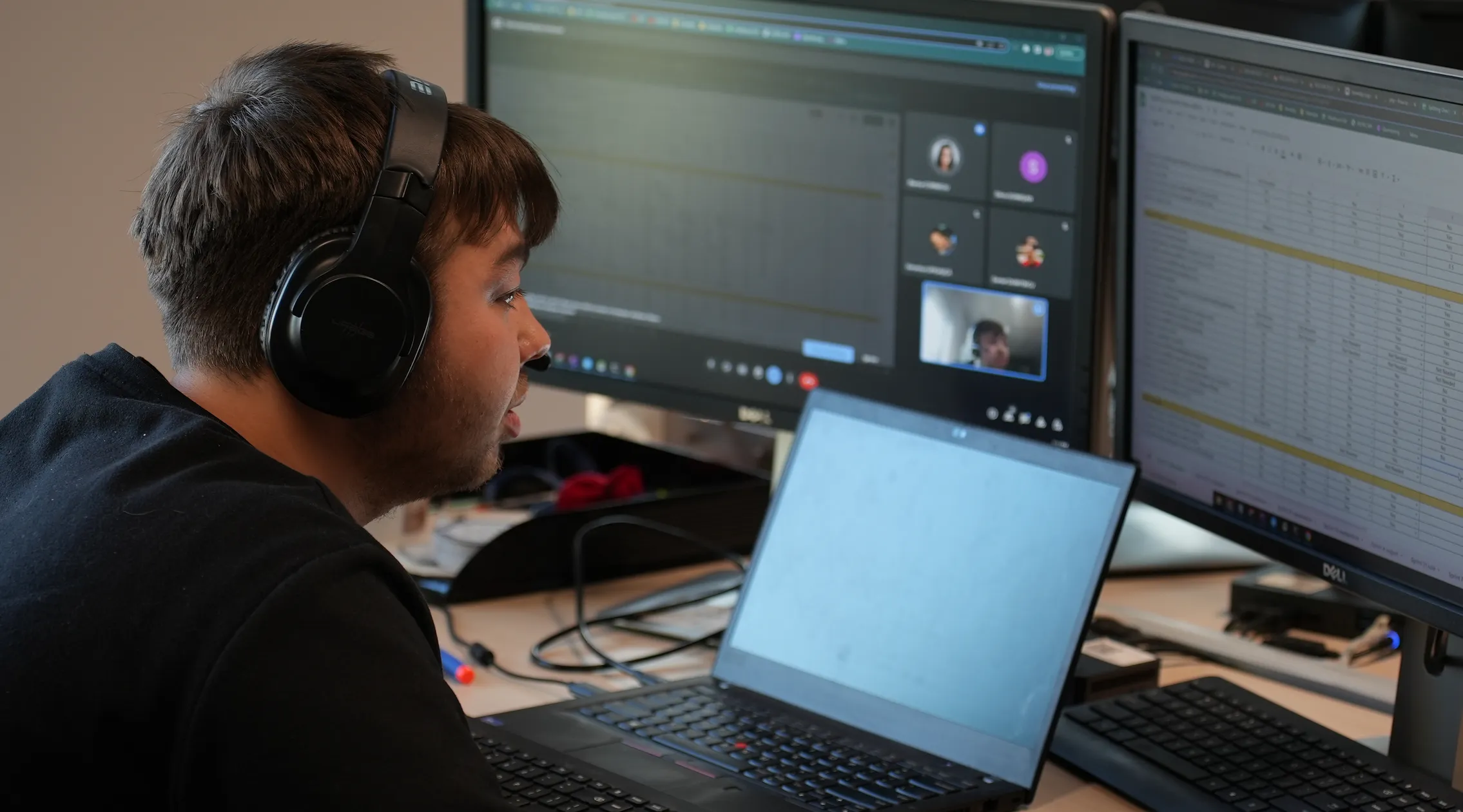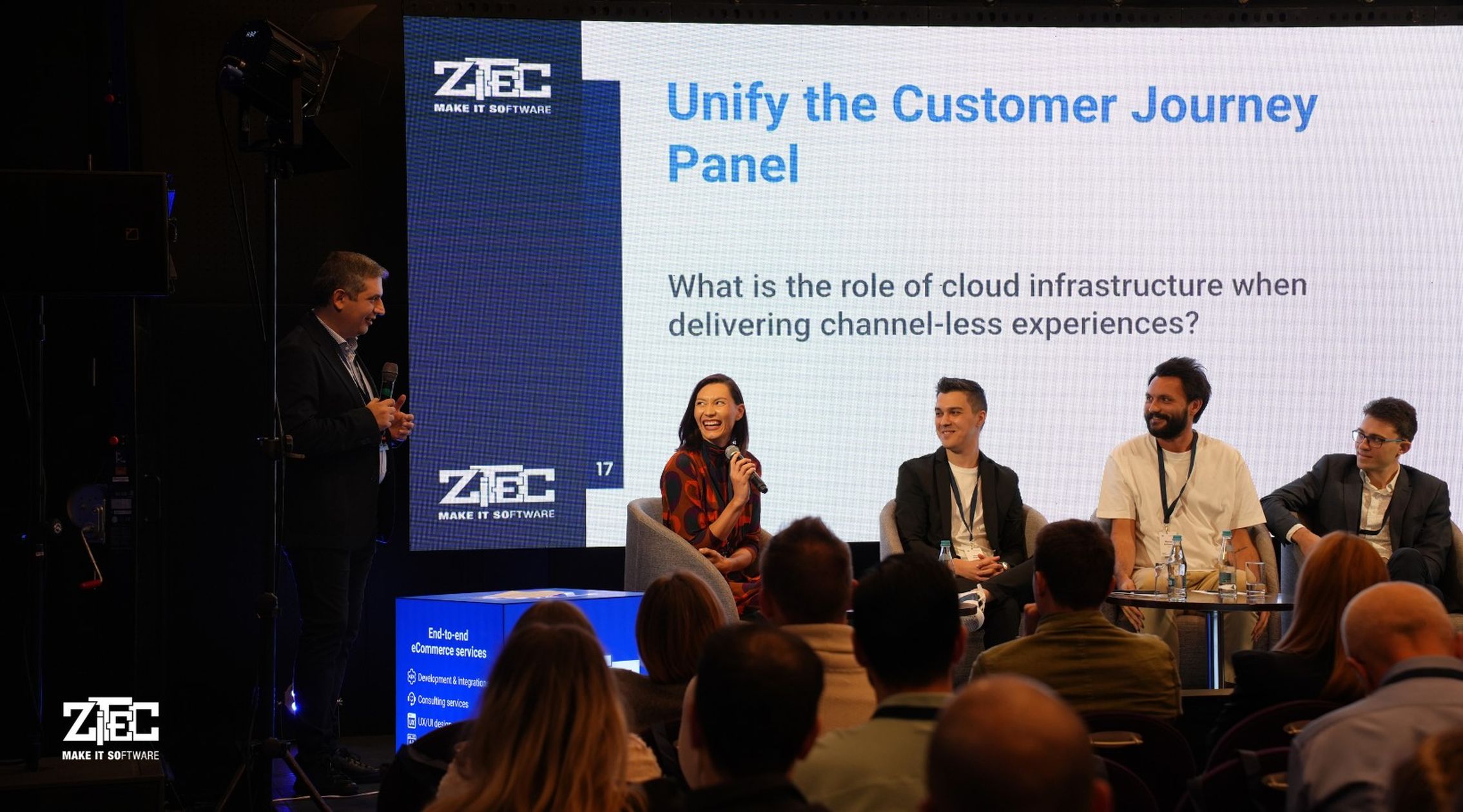At 42, Mihail Mușat, our DevOps Manager, is already a prolific person and a true professional, involved in numerous and diverse projects and activities, both nationally and internationally. Six months ago, he joined Zitec with the mission to develop and expand our DevOps business line due to the increased demand and interest in these services on the market. Specifically, together with the Zitec DevOps team, his goal is to help our clients efficiently bridge the gap between development and operations, streamline their delivery process, and ensure the best DevOps approach for their business and software applications’ needs.
We’ve had the chance to learn more about his career and decided it’s worth sharing this amazing journey with the entire Zitec community and not only.
FROM SOCIAL ENTREPRENEURSHIP TO IT TRAINING AND MANAGEMENT
“My career path so far may seem slightly atypical and I confess that it has sometimes surprised my colleagues, collaborators, or HR people. In DevOps, however, it’s all about continuous learning, cross-department cooperation, and transformation.” These are also the most striking traits that you can see just by going through Mihail’s resume.
Mihail had his first connections with the business world during his college years when he joined AIESEC in 2000. “For me, there was an acute need for practical experiences and interaction with the business world. During my studies, there was a lot of theory, and any use case or more applicable notion felt outdated.” For Mihail, AIESEC was the first bridge between theory and practical business demands due to the fact that, although a youth-run organization, AIESEC resembled a multinational company. He felt that, through this organization, he was able to take full advantage of the economic context of the 2000s. Back then, multinational companies in Romania were open to hiring people in various fields, from countries where they wanted to expand. “In the 2000s, the business environment had different dynamics, there were many growing multinational companies, less entrepreneurship, so I had the chance to interact with many business people and be inspired by them.”
Mihail’s 4.5 years in AIESEC meant dozens of projects in 9 countries and constant exposure to the business environment. This experience came with multiple perspectives, which, he says, helped him during his very first attempts to get into the business world, later being able to apply many best practices and ideas in the companies where he worked.
… AND THEN BACK TO SOCIAL ENTREPRENEURSHIP
“In my early years in business, there was an important component I missed: people doing things out of passion, eager to learn and explore; I missed the continuous learning I saw at the people in AIESEC.” This idea gave birth to an NGO, Asociația Lume Bună, which Mihail founded precisely in the personal development area. He wanted to be able to create opportunities for people to get involved in projects based on their passions or hobbies.
LumeBună.ro operated for over 3 years as a portal of positive news about Romania. The NGO’s activities quickly expanded into the area of cultural events and even into a radio show. “The openness to founding this NGO felt like a part of me; I could see myself creating programs that would have an impact on society. This was, of course, where the influence of AIESEC came in, where, at one point, I took over the chairmanship of a local committee in Belgium.“
For a good period of time, Mihail alternated social entrepreneurship and training with management in technology companies. The transition from trainer to manager was a turning point in his career, which started from the discrepancy he sometimes noticed between the theoretical and practical sides, from the training programs’ ideas and teachings to the bottlenecks and micromanagement people encountered in implementation processes. “Seeing the big gap between the trainer role and the actual implementation process, I felt the need to be as involved as possible. One lesson I learned throughout this period was that a decision or direction should always start top-down and not get lost along the way. But if the direction only goes top-down and there is no down-top feedback process, where challenges are brought forward for the management team to intervene with readjustments, the change process is very slow or even non-existent.”
He’s been fortunate – and still is, he says – to work in companies where organizational change and transformation are very well supported by management. “Any organizational change process needs to have support at all stages, to be clear who is responsible; there should always be a continuous loop, not a one-way journey.”
WRITING AND SPORT – “TWO ACTIVITIES THAT COMPLETE YOU AS A PROFESSIONAL”
Mihail is the author of 2 books on self-discovery and personal development, and the owner of several personal blogs, migrated over time from mihailmusat.ro to LinkedIn. There he shares his thoughts on business, life, and sports experiences. “I discovered a different side of writing through a group exercise some time ago when I had the idea of a collective blog. I saw value in sharing and felt the desire to connect with my experiences in order to give back to others. Through writing, I was able to communicate more clearly and learn how to put myself in the other person’s shoes.”
He is fascinated by people who are passionate about sports, being an active paddle (tennis) and squash player himself. Although Mihail has only played squash at the amateur level, in 2020 he managed to reach the 33rd place in the national rankings. Also in 2020, he placed 3rd in the Romanian National Squash Championship, B division. “Sport increases your resistance to stress and your ability to concentrate for longer periods of time. In my opinion, hobbies, and sports improve the quality of life and increase resilience. If you lose a game, you focus on what you can win next. It’s the same in business: losing a client is not a problem as long as you are able to win and keep many others.“
WHAT IT MEANS TO BE A DEVOPS MANAGER
“DevOps is a technical area where two departments, development and SysAdmin operations, are involved in launching and maintaining a functional online site in optimal parameters. There are fewer and fewer technical people in the market, considering the technical requirements of more and more tools, so DevOps helps streamline the time software developers spend on recurring tasks by helping them focus on new functionalities.”
For organizations with proprietary products that need to be scaled very quickly or who want to expand into other countries, he believes it is very important to focus on a microservices approach to their applications, rather than a monolith. This orientation in product development and launch can be supported from an organizational culture point of view by openness to new technologies, awareness of what is required in the market, and understanding of consumer needs. “A monolith application is slow and cannot respond as quickly and nimbly to market demands, such as building new functionalities or extending existing ones. Moreover, it makes it very cumbersome to scale the application, which generates unjustified high costs“, says Mihail. He also notes that market requirements are increasingly advanced and a culture needs to be as agile and dynamic as the market in which a particular company operates.
Now that you’ve had the chance to meet our DevOps Manager, take a look at our DevOps openings and discover how we advance development and SysAdmin operations for our clients.




